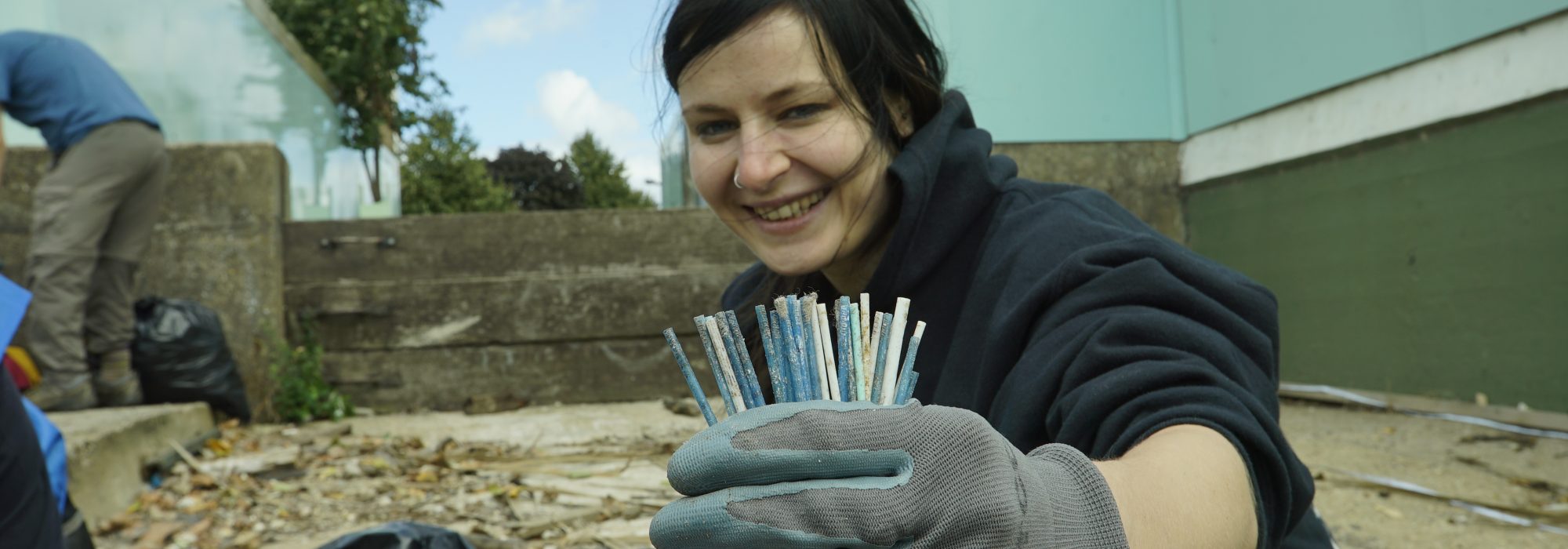Thames21 welcomes potential ban on cotton buds, plastic straws and other disposables
Plastic straws, cotton buds and other disposables could be banned from sale in England under plans set out by Theresa May this week.
A consultation on banning disposable plastic products will launch later this year in a bid to cut the amount of waste ending up in rivers and oceans.
Welcoming the announcement Debbie Leach, Thames21 CEO, said, “This is great news and a welcome improvement on the worrying lack of deadlines in the government’s 25 year Environment plan. We note that the ban is subject to consultation, so it will be crucial that the consultation focuses on the social and environmental impacts as much as financial impacts.”
Sixty five per cent of litter found on the Thames is disposable food related plastic packaging, our Thames River Watch data shows. We see plastic straws on every clean up and count them regularly as part of our long term monitoring. In 2017, Thames River Watch found a record high of 19 straws in a single square metre. Single use plastic bottles, take away containers and cutlery are also major plastic culprits.
“Given the fact that Thames21 helps pull out 200 tonnes of waste from the tidal Thames annually, action is needed as soon as possible”
Toiletries and medical items are the second most common litter type we find in the Thames, flushed down toilets and discharged into the Thames when sewage systems get overloaded. Plastic cotton buds form ten per cent of the litter we find on the river.
This plastic contributes towards the microplastic problem in the Thames, as they break down into smaller and smaller pieces which are then ingested by wildlife. Plastic fibres have been found inside Thames flounder and Thames oysters will likely contain particles of microplastic.
“A ban on these products in the near future will make some progress tackling a vast problem”, said Debbie Leach. “Given the fact that Thames21 helps pull out 200 tonnes of waste from the tidal Thames annually, action is needed as soon as possible.”
“Any ban will need to be accompanied by other measures to attack the problem, chiefly a Deposit Return Scheme and transitioning toward a genuinely circular economy.”
Subject to the consultation, the government is prepared to ban the sale of plastic straws, stirrers and cotton buds in England. Officials will work with industry to develop alternatives and ensure there is adequate time to adapt, and will also propose excluding plastic straws used for medical reasons.
80 per cent of ocean litter comes from land, mainly from rivers. In order to prevent this from happening, a better understanding is needed of the different ways that litter gets from land into our rivers and seas. Thames21 runs the only long-term programme analysing the impact of plastic on the Thames – Thames River Watch.
This year we have also joined forces with Marine Conservation Society to compare river and coast data in order to help shed more light on this issue.
The government is already consulting on a throwaway plastic tax. The public have until May 18th to take part. You can support that here.
